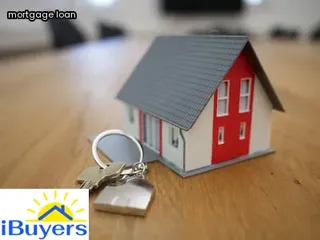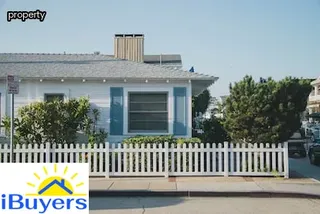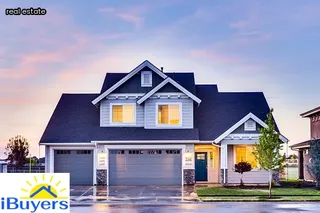Selling a house with a reverse mortgage can be a viable option for homeowners who are looking to unlock equity in their home but may not have other financial resources available. Before making the decision to sell your home with a reverse mortgage, it is important to consider how this strategy fits into your overall financial plan and if it is the most advantageous option.
There are many factors to consider such as the current market value of your home, the size and terms of the loan, and any associated fees or interest costs. It is recommended that you seek advice from an experienced financial advisor or real estate professional to help you determine if selling your home with a reverse mortgage is right for you.
They can provide valuable insight into what options may be available and help guide you through each step of the process.

Selling a home with a reverse mortgage can be a great way to unlock the equity you have built up in your property. However, it is important to understand the financial implications of this process before taking the plunge.
When you sell your home with a reverse mortgage, the lender will take their share of the proceeds first and any remaining balance will go back to you. It is essential to remember that this balance may not be enough to cover all costs associated with selling your home such as legal fees, taxes and closing costs.
Additionally, if the proceeds are not sufficient to cover what is owed on the loan, you or your heirs will be responsible for paying off any remaining balance. It is therefore crucial that you research carefully and consider all potential outcomes before making any decisions as it could have a major impact on your financial situation.
Selling a home with a reverse mortgage carries many risks that must be considered prior to taking any action. The most significant risk is the potential for a lower sale price than expected, as buyers may not be willing to accept the reverse mortgage terms.
Additionally, there may be upfront costs associated with the sale, such as closing costs or fees related to the transfer of ownership. Some lenders may also require additional documentation or an appraisal before they will approve the sale of a home with a reverse mortgage.
Lastly, if you are unable to find a buyer and cannot afford to pay off the loan, foreclosure proceedings may begin with serious financial repercussions for you and your family. It is essential that you understand these risks and weigh them against the potential rewards when deciding whether or not to pursue selling your home with a reverse mortgage.

Comparing fees and costs when selling a home with a reverse mortgage is an important step in determining the best way to maximize profits. Knowing what fees are associated with selling a home with this type of loan, as well as the time frame for repayment, can help sellers make the best decision for their situation.
It’s important to understand all applicable fees and charges, like closing costs, origination fees and mortgage insurance premiums. Being aware of these potential costs can help potential sellers decide whether or not this type of loan is right for them.
Additionally, it’s wise to research different lenders and compare rates; some may offer better terms than others. Furthermore, many reverse mortgage loans come with balloon payments that must be paid upon sale of the home; understanding when these payments will be due can help sellers plan accordingly.
Taking the time to understand all applicable fees and costs involved in selling a home with a reverse mortgage is key to making an informed decision.
When it comes to selling your home, a reverse mortgage can be an effective tool to help you move quickly. Although the process of using a reverse mortgage to sell your house is not as common as traditional methods, there are strategies that can help make it successful.
One key factor in this strategy is understanding the different types of reverse mortgages available and how they work. Another important factor is understanding the potential benefits and drawbacks associated with each type of reverse mortgage, such as whether you are able to receive additional funds from the sale or if the property must remain on the market for an extended period of time.
Additionally, it is important to research potential buyers for your home and determine if a reverse mortgage could be beneficial for them. Finally, when considering a reverse mortgage to sell your home, it is essential to consult with experts who can advise you on best practices in order to ensure a smooth transaction.
With careful planning and consideration of all factors involved in selling your home with a reverse mortgage, you can successfully move quickly and secure a great deal on your new home.

When selling your house with a reverse mortgage, it is important to understand the tax implications that come along with the process. The IRS does not treat reverse mortgages as a loan, but instead as home equity conversion.
As such, taxes will not be owed on the sale of your home when you use a reverse mortgage to sell it, since you are technically not receiving income from the sale. However, if you receive any amount above what is owed on the reverse mortgage, this difference may be taxable.
Additionally, if you decide to sell your home for less than what is owed on the reverse mortgage, you may have to report this difference as income. It is best to consult with a tax professional or an expert in reverse mortgages before making any decisions in order to ensure you understand all of the potential tax implications involved.
The closing process for selling a home with a reverse mortgage is complex and involves many steps. It is important to be aware of the timeline associated with the sale, as well as the associated costs.
First, the reverse mortgage loan must be paid off and the borrower must move out of their home. Next, an appraisal and title search are conducted to determine the current market value of the home.
Once this is established, any liens or other debts related to the property must be paid off before the sale can be completed. Finally, paperwork must be signed by both parties involved in order to transfer ownership rights.
The entire process may take some time depending on local regulations as well as other factors, so it is important to plan accordingly.

Knowing how to sell your home with a reverse mortgage is a complicated process. When making decisions about your home sale, it's important to consider the pros and cons of each decision.
Here are some tips and tricks for making the best decisions when selling your house with a reverse mortgage: first, research the different types of reverse mortgages available, so you can make an informed decision about which one is right for you. Second, consider hiring a professional to help navigate through the paperwork associated with a reverse mortgage.
Third, be aware of any fees or costs associated with selling your home with a reverse mortgage. Fourth, have realistic expectations about what you can get from the sale of your home and make sure that you understand all of the terms and conditions associated with the loan.
Finally, talk to trusted advisors like family members or financial professionals who have experience in this area in order to get advice on how best to proceed. With careful consideration of these tips and tricks before entering into a reverse mortgage agreement, you can make sure that you are making informed decisions and getting the most out of your sale process.
When it comes to selling your home and getting the best possible return on your investment, you have a few options. In some cases, refinancing or taking out a reverse mortgage may be the smartest choice.
A reverse mortgage can give you access to the equity in your home without having to sell it, allowing you to keep living in it while obtaining funds for retirement or other expenses. However, if you’re considering selling your home with a reverse mortgage, there are a few things you should know before making any decisions.
First, understand that reverse mortgages require borrowers to pay off the loan once the home is sold or when the borrower no longer occupies it. If you choose this option, make sure to factor in closing costs and other fees associated with selling a home so that you don’t end up owing more than what your house is worth.
Additionally, compare interest rates between lenders as they can vary significantly, and consider working with an experienced real estate agent who specializes in reverse mortgages—they can provide invaluable advice on how to maximize profit from selling your home.

When selling a home with a reverse mortgage, the loan balance can have a significant effect on the sale of the property. The amount due to the lender is determined by how much was borrowed, when it was borrowed and how much interest has accrued since then.
It is important to understand that the loan balance will not be reduced when the house is sold but instead, any remaining proceeds from the sale will be used to pay off the loan. This means that if there are insufficient funds to cover all costs associated with closing and commissions, other monies may need to be provided in order for the sale to go through.
To ensure that there is enough money available for all costs at closing, it can be beneficial to talk with a financial advisor who specializes in reverse mortgages so they can provide advice on how best to manage this situation. Additionally, sellers should make sure they understand what fees they may need to pay and if they have sufficient funds in their savings or investments in order to cover any difference between what is owed and what is earned from the sale of their home.
If you sell your home with a reverse mortgage and do not repay the loan, it will result in the lender taking ownership of the property. This means that any remaining equity in the home is given to the lender to pay off the loan.
If there isn't enough equity in the property to cover your loan, then you are still responsible for paying back what is owed. It is important to understand all of your options before selling your home with a reverse mortgage so you can make sure you have enough money to pay back what is owed.
Speak to an expert who can explain how these transactions work and help you determine how much money you will need after selling to ensure repayment of your loan.

When it comes to selling a home with a reverse mortgage, navigating regulations and laws can feel overwhelming. It’s important to understand the process so you can make an informed decision about how best to move forward.
To start, it’s important to understand the differences between a traditional mortgage and a reverse mortgage. With the latter, you’re using your home equity as collateral for the loan.
This means that when you sell your home, any remaining debt must be paid in full before the sale is complete. Additionally, there are usually restrictions on who can purchase or live in the house after the sale.
You’ll also need to be aware of state and local laws that may affect the sale of your home with a reverse mortgage. In some cases, these laws may require certain documentation or provide additional protections for buyers and sellers alike.
Finally, you may need to pay closing costs associated with selling your home with a reverse mortgage. It's important to understand all of these regulations and laws before proceeding so you can make sure you're complying with them throughout the process.
When selling your home with a reverse mortgage, it is important to work with professionals who have experience and knowledge in this area. It is also important to be sure that the professionals you work with are knowledgeable about current rules and regulations as well as potential risks of a reverse mortgage sale.
A qualified real estate agent or mortgage broker can be a valuable asset, helping you successfully navigate the process from start to finish. When looking for a real estate agent, look for someone who specializes in reverse mortgages and has experience in this field.
Mortgage brokers can help you identify lenders offering reverse mortgages and provide guidance on which loan best fits your needs. Additionally, you may want to consult an experienced financial advisor to help you understand the implications of a reverse mortgage sale, since these transactions are typically complex and involve tax considerations.
Working with knowledgeable professionals will ensure that your home sale is successful and that your interests are protected throughout the process.

Selling your home with a reverse mortgage is a complex process that requires numerous documents. Many homeowners may be unaware of the paperwork required to complete the sale, but understanding these documents can make it easier and faster to close the transaction.
The most important document needed is an appraisal, which establishes the current market value of your home and sets the loan amount available. A title search should also be conducted to ensure there are no outstanding liens or any other encumbrances on your property.
Other documents include a preliminary title report, certificate of satisfaction or release of lien, and HUD-1 settlement statement. It's also important to have proof of insurance for the property in case there are any unforeseen issues during the closing process.
Finally, you'll need to provide proof of ownership, such as a deed or bill of sale, and provide evidence that you have permission from all parties listed on the title if they aren't going to be present at closing. Taking care to provide all necessary documents when selling your home with a reverse mortgage will help make sure the transaction closes without issue and as quickly as possible.
When selling a home, it is important to explore all available financing solutions. A reverse mortgage can be an effective way to access the equity in your home and make it easier to sell.
A reverse mortgage works by allowing homeowners to borrow against the equity of their home without having to make monthly payments. When the house is sold, the loan is repaid from the proceeds of the sale.
This type of loan allows seniors who are over 62 years old to tap into their home's value without having to sell or leave their homes. The funds from a reverse mortgage can be used for anything from paying off debts or remodeling projects, to providing supplemental income during retirement years.
An expert guide on how to sell your home with a reverse mortgage will provide a comprehensive overview of what this financing option entails, including how much you can borrow, how interest rates and fees work, and more. With an expert guide in hand, you can make informed decisions when it comes time to sell your home with a reverse mortgage and get the best possible outcome for yourself and your finances.
Selling a home with a reverse mortgage can be tricky, as it involves not only the buyer and seller, but also a financial institution that holds the loan. The process is complex and can be difficult to navigate without expert guidance.
However, with proper planning and advice from an experienced real estate agent or mortgage specialist, selling your home with a reverse mortgage doesn’t have to be hard. In this expert guide, we’ll show you how to successfully sell your home while still taking advantage of the benefits of a reverse mortgage.
From understanding the paperwork to setting up an effective marketing strategy, this guide will provide you with all the information you need to make the sale of your home as simple and stress-free as possible.

Selling a house with a reverse mortgage can be an intimidating task, but it doesn't have to be. Knowing how long you have to sell your home is essential for successfully navigating the process.
Typically, homeowners who take out a reverse mortgage must wait until the loan balance reaches 98% of its maximum claim amount before selling their home. This period usually takes between three and five years, depending on the borrower's unique situation.
Furthermore, in order to ensure that all conditions of the loan are being met, it is important to consult with an expert in the field who can help guide you through the process. With their expertise and knowledge, they can assist in determining how long you have to sell your home with a reverse mortgage and provide advice about selling strategies that will help you achieve your goals.
When it comes to selling a home while having a reverse mortgage, homeowners may be wondering if they have to pay capital gains. Fortunately, the answer is generally no.
Under the right conditions, reverse mortgage borrowers are exempt from paying capital gains taxes when they sell their homes. The tax exemption applies only if the homeowner has lived in the home as their primary residence for at least two of the past five years and can prove that they owned and lived in the house for at least one of those years.
Additionally, any proceeds that exceed what is owed on the reverse mortgage must be used to pay off or reduce debt associated with the loan before any profits can be realized. If all of these conditions are met, then capital gains won't need to be paid when selling a home with a reverse mortgage.
If you find yourself inheriting a house with a reverse mortgage, it is important to understand how to best navigate this complex situation. It is possible to sell the home using a reverse mortgage; however, there are certain steps and considerations that must be taken in order to do so.
First, the estate must be settled with the lender. This may involve assigning ownership of the home to the inheritors and notifying them of their responsibilities as owners and borrowers.
Second, if there are any existing liens on the property, these will need to be paid off in full before proceeding with selling the property through a reverse mortgage. Finally, an offer must be submitted by an approved buyer who meets all borrower requirements set forth by the lender.
To ensure that you are maximizing your return on investment when selling a house with a reverse mortgage, it is recommended that you consult an expert in the field who has experience handling such transactions.